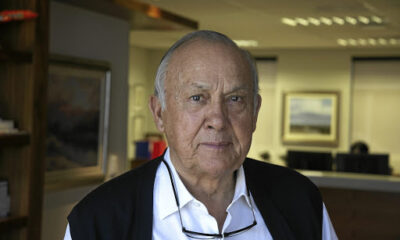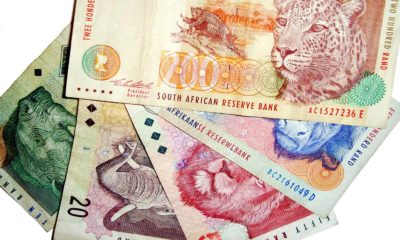- South African Investor Buys More Zenith, Access Shares
Allan Gray Ltd., the largest manager of non-government investment funds in Africa, has increased its stake in Nigerian Zenith and Access banks.
The South African investor, based in Cape Town, is betting on Nigeria’s banking industry despite poor performances by the oil companies it depends on and widespread calls for the naira to be further devalued.
Allan Gray Chief Investment Officer Andrew Lapping disclosed the investment move in a Feb. 10 interview in Cape Town. He didn’t say how big the holdings are or how many shares his company is buying.
“We see a lot of value in Nigerian banks,” Lapping said. “Most people think they’re all going to zero because of the bad debts. We think they will survive” because high interest rates make the banks profitable and they have less debt to equity compared with European lenders, he said.
Access Bank Chief Executive Officer Herbert Wigwe said last month that the bank’s non-performing loans are expected to climb to “slightly below” 3 percent of total loans by the end of 2017. That compares with 2.1 percent for the nine months through September.
The banking industry is under stress in Nigeria, where the economy was in a recession during 2016. Non-performing loans escalated to almost three times the regulatory maximum and foreign investors are calling for authorities to boost flexible trading of the naira before putting more money into the country. An oil price at half its 2014 levels, combined with sabotage and attacks on oil installations that have cut output, has limited dollar supplies in the country, which vies with Angola as Africa’s largest crude-oil producer.
Problem Loans
The bad-debt ratio at Nigerian banks rose to 13.4 percent last year. The naira was devalued in June and traded at 315.50 to the dollar by 6:53 a.m. in Lagos on Wednesday, while the unofficial, black-market rate was 507 naira to the dollar. The official exchange rate should fall to 370 by the end of the year, Craig Metherell, an analyst at Avior Capital Markets Ltd. in Cape Town, said in a Feb. 10 note to investors. Investors are frustrated by central-bank policies, he said.
“Dollar illiquidity and the inability to predict the central bank’s decisions remains a constant deterrent to dollar-based investors,” Metherell said. “While we argue that valuations look cheap, we find it difficult to justify investing new money given the current status quo.”
Allan Gray isn’t the only investor that’s interested in local lenders.
Laurie Dippenaar, chairman of Johannesburg-based FirstRand Ltd., Africa’s largest bank by market value, said last month that it’s looking to buy a mid-sized bank.
Diamond Bank Plc, Sterling Bank Plc and Wema Bank Plc were among mid-sized Nigerian lenders that plummeted more than 40 percent last year as the domestic economy performed the worst since the 1980s.
“Everyone thinks the naira is going to weaken, but I’m not so sure,” Lapping said. “The bad-debt problem can cure itself over time.”
Oil Exposure
Nigerian banks are also attractive because their small size — in an economy that vies with South Africa as the continent’s largest — adds to their growth potential, while lending as a proportion of equity remains low at 3.5 times, Lapping said. Still, the industry’s exposure to oil remains a concern, he said.
Guaranty Trust Bank Plc, Nigeria’s biggest bank by value, has a market capitalization of 715 billion naira ($2.3 billion), Access Bank is valued at about 194 billion naira and Zenith at about 475 billion naira.
FirstRand, Africa’s largest bank, has a market value of 293 billion rand ($22 billion).
The Nigerian Stock Exchange Banking 10 Index has climbed 0.7 percent this year as gains by Access Bank, Zenith, United Bank for Africa Plc and Fidelity Bank Plc helped compensate for losses in the other six members of the gauge.
“Maybe we’ve dug ourselves into a hole” by investing in Nigerian banks, Lapping said. “Even if it’s 50-50, going bust or going up, the upside is so much that it’s worth the risk.”


 Forex3 weeks ago
Forex3 weeks ago


 Naira2 weeks ago
Naira2 weeks ago
 Billionaire Watch2 weeks ago
Billionaire Watch2 weeks ago




 Naira2 weeks ago
Naira2 weeks ago




 Naira2 weeks ago
Naira2 weeks ago




 Naira1 week ago
Naira1 week ago




 Naira3 weeks ago
Naira3 weeks ago




 Naira4 weeks ago
Naira4 weeks ago



















